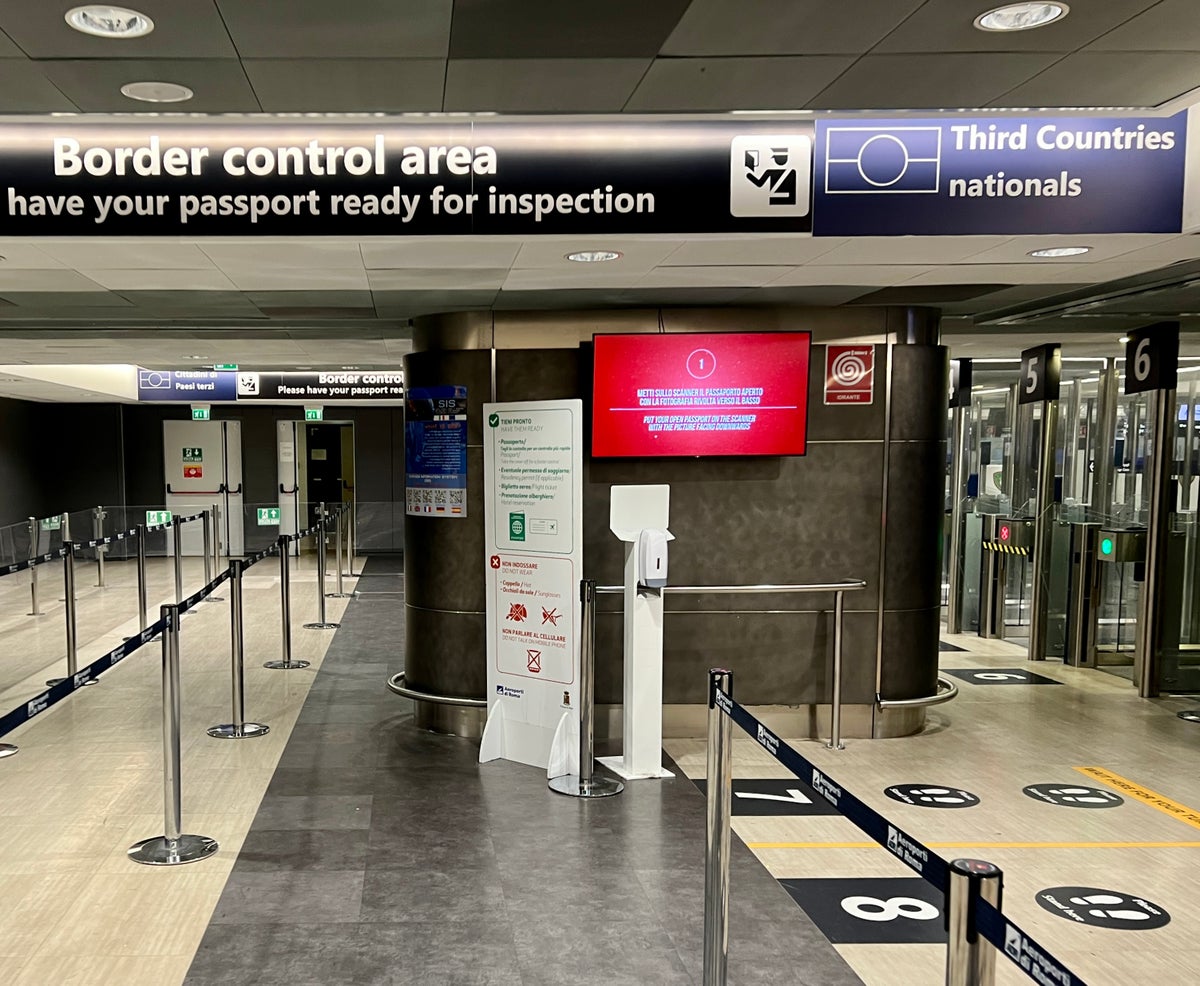
European nations have warned that new fingerprint and face checks on arriving in the EU could take “up to four times longer” than the present system – with the processing time increased by up to two minutes per person.
The tougher border checks, known as the “Entry Exit System” (EES), are due to come into effect in May 2023 – just ahead of the peak summer season.
The UK helped develop the EES while part of the European Union – then, with the Brexit withdrawal treaty, asked to become subject to the new system.
From next summer, each time a third-country national crosses an EU external border, fingerprints and a facial biometric must be checked.
Citizens of European Union countries, even those outside the Schengen Area such as Ireland, are unaffected; officials can check only that they have a valid travel document.
Because the UK chose to leave the European Union, the number of travellers “caught” by the Entry-Exit System will be much higher than originally envisaged.
Warnings from individual governments appear in a paper published by the General Secretariat of the Council in Brussels.
Views were sought from across the EU about the readiness of the system, and The Independent has analysed their responses.
The Slovenian government modelled the effect of the EES and reported: “It takes up to four times longer to do the new process – border check + enrolment + verification.”
Austria’s authorities said: “We expect process times to double compared to the current situation.”
Poland’s government estimates: “The time for border control of a single passenger will increase by 30-120 seconds, but only in the case of the so-called ‘happy flow’.”
The term “happy flow” refers to the smooth progress of properly documented travellers through the frontier post.
Officials in Warsaw warn: “The time indicated above does not take into account cases requiring additional activities, such as identity management.”
Croatia predicts: “The waiting time for border checks will certainly be significantly longer.”
Finland is preparing for a “significant increase of workload at the beginning, because the process will change so much from the passenger’s point of view”.
France says it will use new technology at airports: “We will set up so-called ‘self-service’ systems (kiosks), supervised remotely via video means by a border guard.”
But that will not help at the three “hard EU frontiers” that the UK asked to be established after Brexit: at the port of Dover and the Folkestone Eurotunnel terminal in Kent, and at London St Pancras International – hub for Eurostar trains to Paris, Brussels and Amsterdam.
Last month Doug Bannister, chief executive of the port of Dover, told MPs: “We haven’t seen what the process is; we don’t know what the technology is.”
He warned the Transport Select Committee that checkpoint times for motorists leaving the UK could increase seven-fold.
“What we have heard is that it could be two minutes per person to register, plus two minutes for the car, so that’s 10 minutes for a car full of four people,” he said.
A UK government spokesperson said: “The European Union is introducing the Entry and Exit System to help to protect and strengthen the security of their external border by registering the entry, exit and any refused entries of third-country citizens crossing into Europe.
“It is the responsibility of the EU Member States to implement these checks. We are working closely with port authorities, operators and the French government to make sure passengers are prepared and do not experience unnecessary delays at the border due to new entry and exit system checks being introduced next year.”
The EES is the system that will underpin the new Etias scheme – an online “eurovisa” that will cost €7 (£6) and require pre-registration.
Again, the UK was involved in the early stages of planning but, after the Brexit vote, asked to become subject to the new requirements.
The European Union claims Etias will be a “simple, fast and visitor-friendly system” that will “save travellers time and hassle”.







